I'm sure we're all aware of who the vikings were in the broadest sense.
A brief synopsis...
The Viking peoples were made up of various tribes, covering modern day Denmark, Sweden, and Norway.
They were mainly farmers, hunters, and fisherman.
They also raided other peoples lands to find wealth. (metals, slaves, and land, on which to settle).
...early Viking expansion
They had their own gods before Christianity.
Their influence stretched over most of Western Europe, and parts of eastern Europe, and is well documented.
Their time of greatest influence outside of their own territories, lasted from the late 7th century, up until the 11th century.
William the conqueror (the duke of Normandy), who invaded England in 1066, was Viking, not Gallic.
...Ok, there's the briefest of synopsis!
(It would be very easy to write half a dozen posts just about The Vikings - they were a fascinating peoples).
In context of these posts, it's the pre christian culture that's of most interest.
(Christianity - as a religious movement - arrived slowly, from the late 8th century, onwards, into viking culture).
The customs, social structures, and laws offer valuable lessons in decentralization, philosophy, and cohesion, in today's world.
And in getting to know yourself.
Life in Scandinavia before Christianity.
Vikings had a very strict, and rigorously followed, code of conduct.
They were far from 'the uncivilized barbarians' that Hollywood has tried to project for decades. (and for good reason - if you buy into the paradigm of the 'Hollywood propaganda' machine narrative).
Their code of conduct - or The Nine Noble Virtues - was considered to be more important than their laws.
Their laws were based on incorporating these nine virtues into them - with as little conflict as possible.
If you compare common law with statue law of the governments today, we can see just how far it is that we've moved away from the fundamental point of having laws in the first place.
The Nine Virtues.
1...Courage.
The Nine Noble Virtues starts with courage.
Without courage you cannot live up to your code of honor.
It takes courage to stand for your beliefs and live according to your own code of ethics.
The Vikings were known for their courage and bravery in battle, but 'courage' applies to a lot more than armed conflict.
It applies to every part of your life.
The courage to do what you know is right, (especially when those around you disagree with your point of view).
Standing for what you believe in - in the face of a group consensus that disagree's with you.
Conviction in your beliefs and to live your life by your own code, takes courage.
Knowing yourself, takes courage.
(for example, writing incessantly about Utopian decentralization while working for a corporation, paying tribute (tax), being in debt, and not being independent - is NOT living by courage. It is the opposite).
" The test of courage comes when we are in the minority ".
Emerson
2...Truth
This comes with conviction and confidence (in your beliefs).
With courage in place, you can then speak your words - and act in truth.
Truth, in the context of a day to day viking life - is simply being honest.
For the Viking warrior, truth and courage were indistinct from each other.
Living according to what you believe in your heart to be right - is living in truth - and you will have no reason to lie about your actions.
If you do not think that an action is right – Then simply don’t do it. If something is not true – Then simply don’t say it.
Different people see things differently of course, and perceive 'the truth' in different ways - and that is irrelevant in the Viking mindset!
You live by your truth as best you can.
You respect other people’s right to believe what they want.
For the Viking, always being truthful with yourself was taught from childhood.
The Vikings permitted lying - if you were being lied to.
The Viking warrior, and the culture they lived in, understood that honor is not a 'black and white' proposition.
They understood the reality of nuance in most things.
They understood that the 'one size fits all' approach - like we have today in our very centralized systems - is stupid.
It's fragile.
Independence in everything was uppermost in the Viking mindset.
This very much ties into the 'Knowing thyself' as being the very foundations for all things stable in a society.
....truth in thought, truth in speech, and truth in action.
Gandhi
3...Honor.
According to Viking cultures, living without honor means there can be no warrior - or even a human being who lives in their truth.
Honor was not seen as a 'black and white' character trait. (that's very simplistic thinking).
Honor is your internal integrity...And it is subjective to each individual.
It can only be the individual who determines his (or her) honor.
Reputation is determined by other people’s thoughts - but only you can determine your own honor (or lack of) .
Intent and action determine your honor... never what anyone else thinks.
'...A Viking who lives by his own code of honor, will have very few regrets in life, as he will know that he's done the best he can..'.
" Honor is a harder master than the law ".
Mark Twain
4....Fidelity
Fidelity means faithful.
Fidelity - as used in the context of The Nine Noble Virtues, refers to being faithful to yourself and to your beliefs (your gods).
Being loyal and faithful to the family first, and then the group, was a non-negotiable perspective .
They understood the reality of 'in group preference' and they built their society around that fundamental understanding.
If somebody murdered a Viking’s family member,the family would have an obligation to seek vengeance and puts things 'right'.
This was not quite the same thing as seeking revenge, as this was seen as an obligation to the ones that have been wronged.
The Viking took his fidelity to his friends and family seriously - just as he did with his spiritual relationship with his Gods.
5...Discipline
...means self-discipline.
You need discipline to be able to live according to your own personal code (of ethics).
In living by your own standards, you must be willing to control your own actions.
"...He who lives without discipline, dies without honor".
Viking Proverb
6...Hospitality
The Viking was expected to treat others with respect and dignity.
(The Vikings believed that sometimes, their gods would visit people in human form - and that in being disrespectful to strangers, you could be disrespecting the gods).
You treat others with hospitality - not because they deserve it, but because that's how you always behave towards other people in your group.
It is the task of a good man to help those in misfortune.
Sophocles
7...Industriousness.
...the willingness to work hard at whatever you do.
If something is worth doing, do it well, do it with pride, and do it to the best of your ability.
The Vikings looked down on those who were lazy within their group.
Mediocre actions are not an acceptable course of action in the Viking mindset.
Warriors set high expectations and they refuse to lower their standards - both in work and personal beliefs.
Hold yourself responsible for a higher standard than
anybody else expects of you. Never excuse yourself.
Henry Ward Beecher
8...Self-Reliance
The Viking is by nature, a very independent being.
They will strive to ensure that they never have to depend on others for survival.
The Viking warrior was responsible for taking care of himself (and his family).
Being dependent on someone else for your own needs, puts you in a very dangerous - and vulnerable - position.
The greatest fruit of self-sufficiency is freedom.
Epicurus
9...Perseverance
Without perseverance you cannot be successful in applying the Nine Noble Virtues.
The Viking mindset didn't allow for giving up and quitting - it's not acceptable.
The Vikings code of honor was too important to give up just because 'the going gets tough'.
Perseverance was an essential virtue to be able to live the life of the Viking.
These were the nine ideals that the Vikings lived by, and the principles that they taught their children.
There are many variants on these virtues, and were not as simplistic (or as idealized, I'm sure) as I've laid out.
For example, and oath of allegiance is an oath until death - BUT, if the oath giver has used lies and deceptive means in which to secure that oath, it can be broken without shame.
Without any loss of honor.
There are many 'clauses' to each of these nine virtues - which makes them a great strength.
Nothing is written down as 'must be' - it's very reliant on the individual taking responsibility for their own actions.
The basic tenets of honesty, courage and discipline are a constant.
The Viking law.
Was not written down and codified, like it is today.
Was NOT seen as important as the noble virtues.
Was subjective, and taken on a 'case by case' basis.
The 'ting' (or 'thing') was the Viking word for a legislative assembly (the modern day courts).
A criminal was brought to the 'ting' to stand trial.
The ting was more than just a legal procedure - it was a monthly - or six monthly - gathering of peoples.
Trade, festivities, marriage arrangements, etc , all occurred during 'the ting'.
Back to the the ting...
Facts of a case were established by a panel of people, each stating what they THOUGHT was the truth.
A jury of 12, 24, or 36 was then assembled - depending on the importance of the case.
The jury decided the question of guilt or innocence.
The accused was then either convicted, or declared innocent - by the jury.
The 'law-sayer' told the jury what the law said about the crime that had been committed, but nothing was 'set in stone'.
If convicted, the criminal was then fined for the crime - or declared an out-law.
To be an outlaw meant living out in the wilderness and no one was allowed to help them in any way whatsoever.
He was also free game for his enemies. They were free to hunt him down and kill him, without any negative consequences.
Also, a Viking can be pardoned from a crime - if his reasons for committing the crime, sit in honor.
**There was no law against taking war to other groups, or taking slaves from other groups.They had no law against piracy - as long as it was against 'an enemy -i.e not their 'in group'.
Solving minor disputes.
A duel (Holmgang) was a common way of solving disputes.
A 'dueler' was defeated as soon as their blood touched the ground.
Winning a duel was regarded as proof - that you were correct.
(because the gods always helped the "right" man, to win).
The scope of this post- in relation to 'knowing thyself', cannot cover all aspects if Viking life and culture -this is the briefest of outlines so as to give you a general idea.
And the idea is this....
Vikings lived a decentralized life, and lived very much by their own moral and ethical codes - one which they took very seriously.
This enabled decentralization to work.
Without moral codes to define the law - to bind them to a group, decentralization cannot endure.
'Code is law'
The block chain mantra. The block chain bullshit mantra (imo).
...and just maybe the block chain noose by which it will hang itself ...
Lets look at hive.
'Code is law', means - in reality - that code written by a handful of people, and then agreed upon by a small number of other people - and then implemented.
This is long , long ,way from the Viking decentralized model.
There is no honor required, nor ethical code, nor loyalty...
The 'power' within the ecosystem - and size of voice - is dependent upon stake size (All Vikings had equal say at their meetings - their 'ting').
The chieftain of the community did not have higher standing than the shepherd, when it came to 'speaking their truth' at their community gatherings.
(in theory at least).
The Viking lifestyle was one of total independence, with the understanding that the need for 'the collective' was some times - only periodically - required.
Without any individual moral and ethical code ingrained first (in childhood) , the collective concept could never work successfully.
Collectivism today, is ALL about exerting power over others.
This is the antithesis of the Viking mindset, culture, and way of life.
...(and just maybe, that's why 'Hollywood' has portrayed 'the Viking barbarian' as they have done).
A successful collective is dependent on strong individuals with their own set of principles and ethics.
A successful collective is dependent on knowing yourself first.
A successful is not immersing your identity in 'group think', or taking on other persons ideologies and speak them as your own, or looking for approval in consensus.
If you truly know yourself - and live by the noble virtues, then 'the collective' - used as as weapon of control - can never, ever, come into being.
THE VIKING MINDSET REQUIRES INDIVIDUALITY.
REQUIRES KNOWING YOURSELF FIRST AND FOREMOST.
REQUIRES YOU TO BE AN ADULT AND TO TAKE RESPONSIBILITY FOR YOURSELF - NOT OTHERS.
How then, do we integrate the independent individual into 'healthy collectives'?
We don't.
That's the wrong way to look at it.
We integrate the 'healthy collectives' to fit into the independent individuals lifestyle.
CODE IS LAW is not a healthy expression of 'the collective'.
It is oligarchical.
Oligarchical structure is the power over others, and it can never be a healthy system. Unhealthy ecosystems do not endure. Ever....
(the clue is in the word 'unhealthy'!)
Oligarchical structures are not part of the viking mindset (seeing Hive as the 'in group').
My next post explores this conundrum of 'in group preference' in the digital world.
Decentralization, like everything in life, comes at a cost.
Less security - in exchange for that decentralized freedom - is that cost.
Personally, I don't think people know themselves nearly well enough in today's world, not to exert that will for freedom at the cost of security (an illusion).
People want the freedom, but not the responsibility.
Suck it up buttercup - you can't have both.
Grow the fuck up.
Know yourself.
*I'd love to say that I've lived my life true to these nine noble virtues - I see them as a worthy code in how to live life - but it would be a lie.
I'm getting to know myself - more and more - in my own personal journey.
'The Viking' in me is awakening....and you know what?.. it feels very good.
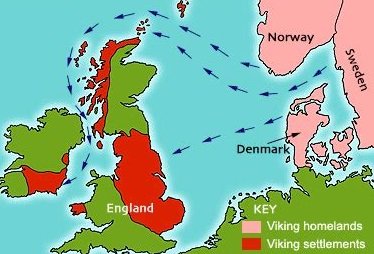
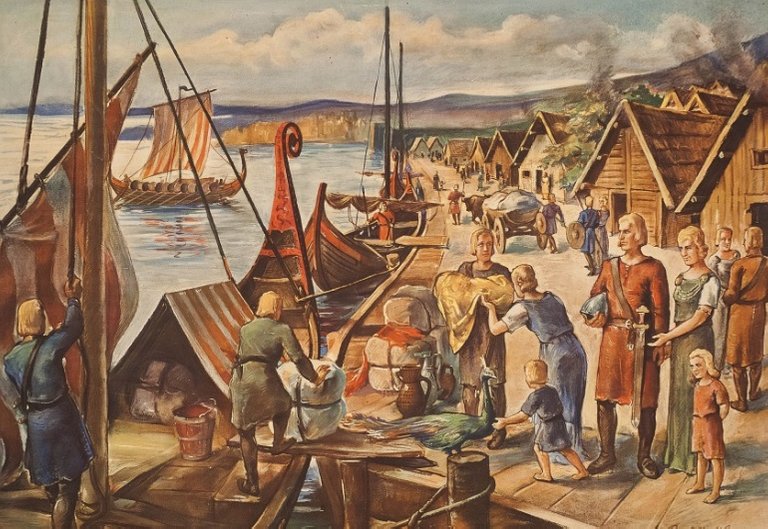
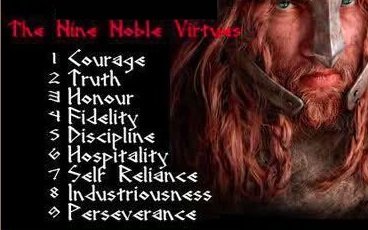
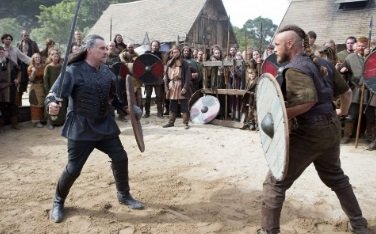

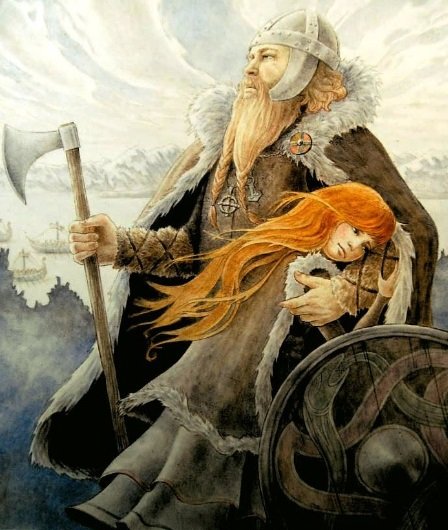
Lots of total bullshit in the mainstream about Vikings.
The Vikings are great people. I think they've been around for a lot longer then we've been told. They have really strong pre-Christian culture that the elites would love to destroy, and they're trying...destroying the warrior archetype and masculinity ad turning us into a bunch of passive, submissive, useless idiots. These 9 virtues are good to know, thanks.
Out of those virtues, the world could use at least a little more 1, 2, 5, 7,and 9. And parents should not be afraid to instill these in their children! It's sickening to see failure and apathy rewarded and discipline seen as something especially rare, and maybe even cruel, so definitely not worth doing.
...there's a lot more to them, but didn't really fit into this post - maybe I'll do a series of posts about them, in greater detail.
I'm warming to Vikings now after reading this.
They are so different to eunuchs and millenials.
And socialists.
xD
vikings were so much more :)
there was a great old world before.. pagans, gnostics, shamans, druids, big worldwide trade and knowledge culture.. :)
@tipu curate
Upvoted 👌 (Mana: 11/22) Liquid rewards.
Code can't create law , law can create code , The law is unwritten .
live by the code , live in justice with the unwritten law .
Viking code , it's a bit like the pirate code . ;-)
Incredibly there was a similar belief in ancient Greece. They believed that sometimes the gods, particularly Zeus, dressed in human form, and acted as a foreigner or a beggar to test people's hospitality and virtue. It is said that once, Zeus and Hermes went door to door through a city in Greece, disguised as peasants, asking people for a place to spend the night, but no one attended them and only two people, an elderly couple named Philemon and Baucis, opened them the doors. The couple soon realized that their guests were gods, and the latter told them that they were going to destroy the city due to the lack of virtue and hospitality that was there, allowing these two people to escape while they sent a flood to the city. Myths like these were so widespread throughout Greece that even in Christianity it is alluded to when in the Book of Acts it is said that when the apostles Paul and Barnabas visited Lystra (Greek city), they were mistaken for gods (Hermes and Zeus respectively) for doing apparent miracles.
Zeus, the most important god in Greek mythology, was the patron of hospitality, and for that reason they gave him the epithet of Xenios, which means something like "foreigner", from which words like xenophobia come, which means fear of foreigners. It is incredible that many times they want to sell themselves to the western tradition as xenophobic, when in reality, and in its origins, it's quite the opposite.
Although yes, I had already heard about the nine virtues, although I really don't know anything in depth, not much about the Vikings either, so, interesting to read.
Yes, the stupid thing with written laws is that one then dances around the interpretation and does not agree on it, so the whole contentious matter is handed over to someone who calls himself a judge and is supposed to pronounce justice over the opponents.
I am more in favour of settling the matter among ourselves in a situation that arises spontaneously, without having to look for someone afterwards to take sides. But situationally just decision-making is of course only possible in a community of people in which there is no lying and cheating.
I repeatedly deal with divorcing spouses and they usually first ask what the law says, but not how they themselves want to divorce and what would be fair for themselves and the other person from their own perspective. Everyone has a really good sense of what is fair. However, this sense is compromised by what you find in terms of legal grounds and that then distorts the whole separation process.
I usually say that if the separators are unable to agree among themselves, then they would be decided over both their heads, which may not please either of them. And do they really want that?
Sometimes it is possible for the separating couples to realise that if they do not want to come under the thumb of the authorities, they had better not involve anyone else who, at worst, would parasitically profit from their misery.
Are there any findings about the Vikings regarding the choice of their partners?